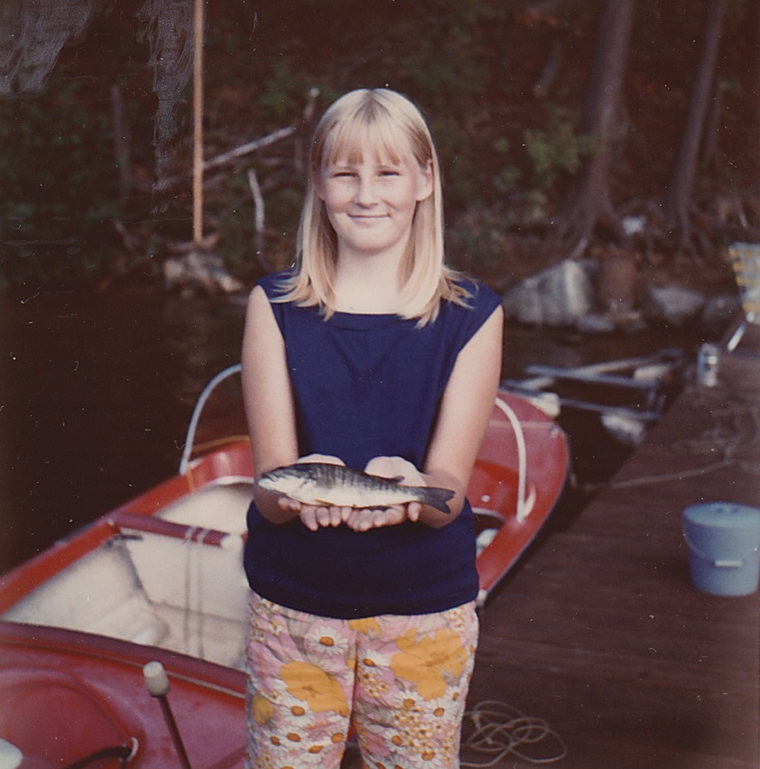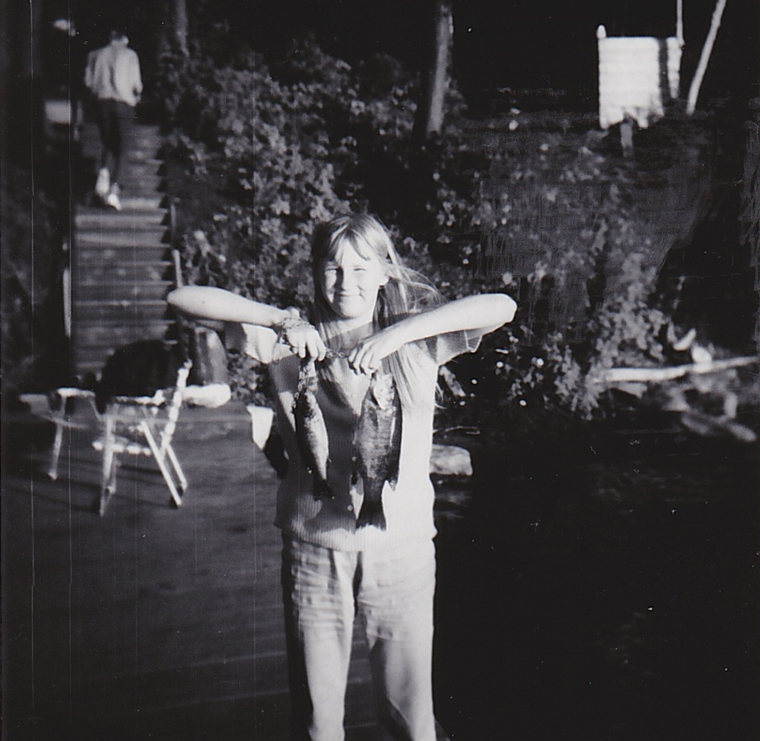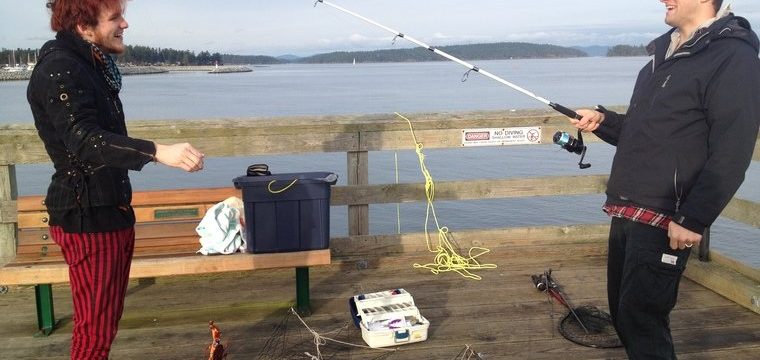This post is about fly fishing for children in British Columbia. Fishing is something that most people have tried at least once in their life. I am no exception.

Above is the first fish that I ever caught. It was Tuesday August 12, 1969. I caught it from the end of our dock. It was a small mouth bass; 9 1/4 inches long and 2 1/2 inches wide and about two pounds in weight. I was 12 years old.
Before my fishing career as a child ended, I caught two more fish.

Penguin’s Wanderlust is extremely fortunate to be able to have interviewed Pat Micek of British Columbia Flyfishing Resources. We hope that this information will be helpful to you.
Interview with Pat Micek of British Columbia Flyfishing Resources
Is fly fishing a sport that children can enjoy?
Yes. Fly fishing is a sport for the entire family. Each year I teach groups of young people the fine art of fly fishing. Usually, as part of outdoor education, a school hires my company to instruct students. We provide courses that vary from 1 day seminars to 5 day camping and fishing.
How old should a child be before they are taken fly fishing?
My daughter began fly fishing at age 8. I would suggest matching the sport to the child, that is, if the child is strong enough to handle a light rod and has some basic coordination, then, certainly give it a try.
What would you recommend as a good way to start?
Link a young person up with a fly angler that is competent and capable of connecting. It is very important to have an instructor that is familiar with the needs young people. The energy level of a child is not that of a teen, and a teen doesn’t have the same energy level as an adult.
Are there any simple flies that a child could learn to make?
Yes. A young person can begin to tie flies even before angling. The results may not be works of art, but they will catch fish. I know of many young adults who are good tiers. It requires patience and practice, just like everything you begin. The first patterns to tie are Wooly buggers, Hare’s Ears, Simple Streamer patterns, and Wooly Worms. These patterns can be tied successfully after a couple hours of practice.
What kinds of supplies are used to make a fly?
I always recommending purchasing a good tying vise, and buying some simple materials and tools. The box kits are nice, but too often the materials are not needed or appropriate for the flies of the area in which the tier lives. Seek that advise of a fly shop or competent tier.
Why do fly fishermen use flies instead of other kinds of lures or baits?
Many flies are representative of the food that fish eat. In other cases, the flies are meant to deceive the fish. The use of lures and bait simply are not part of the “art of fly fishing. Fly tying and fishing is a package deal, one lead to the other. You are constantly learning about the food sources and trying to imitate them with the flies you tie and the way you fish.
Do different types of fish get attracted to different kinds of flies?
Different fish feed on different food sources. Ocean game fish don’t eat bugs, for the most part. River and lake fish survive on bugs and other things, like small fish, frogs and leeches.
Can flies be bought ready made?
Sure! But buying flies can be very expensive. And, there is an art to choosing the right fly to buy. Making them is just a lot of fun.
What are the safety considerations or rules that should be followed to make it safe?
I’m glad you ask about safety. When I teach fly fishing we spend a lot of time, when appropriate helping new anglers understand the safety factors. Like any sport there are many things to consider, but when you toss in water and a long object being waved in the air, well, you need to know what to do.
A few simple rules to remember when fly casting are: check for others around you, wear sun glasses, debarb the hook, start off casting slowly. When near water you always follow the standard rules, and without question wear a water safety vest. Always go fishing with someone else, and this is another good thing about fly fishing.
Could you please explain what “debarb the hook” means?
Debarb – to flatten or remove the hook’s barb. Some area require barbless hooks, and we use only barbless hooks in case a student should get a hook in the body somewhere.
Are the casting rods made specifically for children a good idea to buy?
No, not to my knowledge. You can get rods that are short and light weight.
What kinds of fish can be caught in British Columbia?
British Columbia is a fly anglers paradise. There are so many species of fish to be caught that it twists the mind. Just to name a few: small and large mouth bass, steelhead, rainbow, brown, and cutthroat trout, 5 types of salmon and many other species.
Where can fishing licences be bought?
Most communities have a vendor for licences. Gas station, or tackle shops often handle the sale of licences.
Is there such a thing as ocean fly fishing?
You bet there is. Ocean fly fishing in BC has been going on for a number of years. Many anglers are just beginning to experience the thrill. Much of the ocean fishing is for salmon. Some casting of flies is done from the beach, while many more opportunities open if you have a boat.
Is fly fishing done from a boat, wading, or from a dock?
Fly fishing can be done from all of the above and more. Once I was sitting on the tail gate of my car casting to salmon on the edge of the surf. And guess what, I hooked a few that way.
What does a guide do?
A good guide is a resource, teacher, and a bit of an entertainer. There is no doubt that guides have a lot of knowledge about fly fishing. They are hired to help angler be successful fishers. But past that, if given the chance, a guide can help an angler improve casting and fishing techniques, talk about the environment, give information on the fish species, and a lot more. And, oh yes, an entertainer! A guide can provide a wealth of stories that will thrill, delight and wet the appetite.
Thanks, Pat.
Note: We hope that this post has encouraged you that fly fishing for children is worth experiencing.
Pat Micek has retired but some static information remains up on his web site:
BC Flyfishing Resources:
http://www.bcflyfishingresources.com/vanisle/index.php
